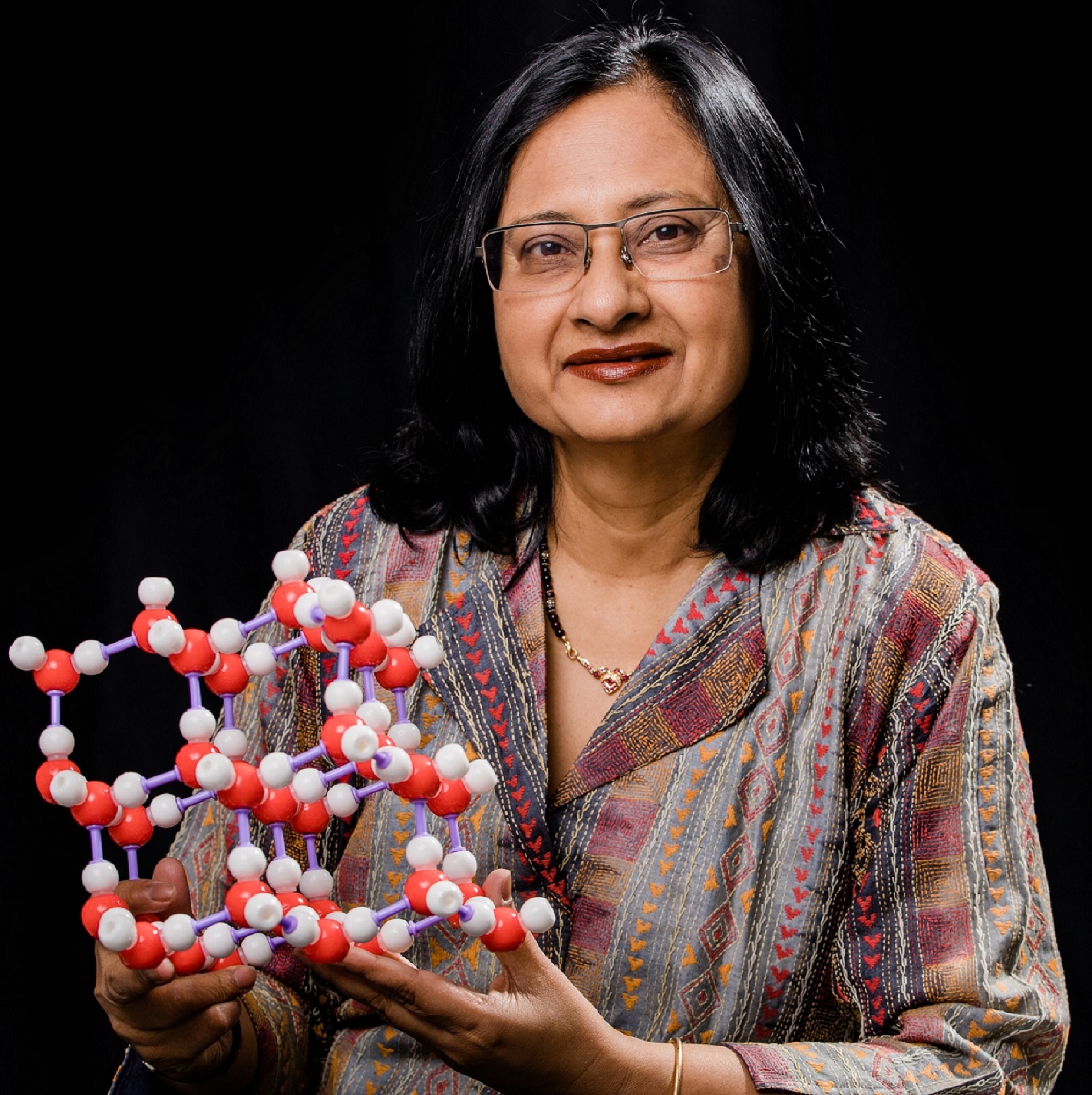Bachelor of Science with a Major in Chemistry, Business
This degree has as its core a number of fundamental courses in chemistry and allows for students with interests in additional fields to build a broad based curriculum. Combining this degree with a minor or second major prepares students for a variety of career opportunities in addition to laboratory positions and include the following: with business – technical sales; with biology or geology – environmental studies, industrial hygiene; with political science followed by law school – patent law; with education – middle school or high school teaching.
For more information, please see the Academic Catalog. A program map, which provides a guide for students to plan their course of study, is available for download in the Courses tab below.
This degree has as its core a number of fundamental courses in chemistry and allows for students with interests in additional fields to build a broad based curriculum. Combining this degree with a minor or second major prepares students for a variety of career opportunities in addition to laboratory positions and include the following: with business – technical sales; with biology or geology – environmental studies, industrial hygiene; with political science followed by law school – patent law; with education – middle school or high school teaching.
Career Opportunities
Link to Additional Career Information:
https://www.acs.org/content/acs/en/careers/college-to-career.html
External Resource
Program Location
Carrollton Campus
Method of Delivery
Courses are primarily taught face to face. Some courses may be available partially or fully online, however, this is not an online program.
Accreditation
The University of West Georgia is accredited by The Southern Association of Colleges and Schools Commission on Colleges (SACSCOC).
Credit and transfer
Total semester hours required: 120
This program may be earned entirely face-to-face. However, depending on the courses chosen, a student may choose to take some partially or fully online courses.
Save money
UWG is often ranked as one of the most affordable accredited universities of its kind, regardless of the method of delivery chosen.
Details
- Total tuition costs and fees may vary, depending on the instructional method of the courses in which the student chooses to enroll.
- The more courses a student takes in a single term, the more they will typically save in fees and total cost.
- Face-to-face or partially online courses are charged at the general tuition rate and all mandatory campus fees, based on the student's residency (non-residents are charged at a higher rate).
- Fully or entirely online course tuition rates and fees my vary depending on the program. Students enrolled in exclusively online courses do not pay non-Resident rates.
- Together this means that GA residents pay about the same if they take all face-to-face or partially online courses as they do if they take only fully online courses exclusively; while non-residents save money by taking fully online courses.
- One word of caution: If a student takes a combination of face-to-face and online courses in a single term, he/she will pay both all mandatory campus fees and the higher eTuition rate.
- For cost information, as well as payment deadlines, see the Student Accounts and Billing Services website
There are a variety of financial assistance options for students, including scholarships and work study programs. Visit the Office of Financial Aid's website for more information.
Downloads
General
Core Area A: must include MATH 1113 or MATH 1634* (*1 hr moved to Area F) Core Area C: foreign language is recommended Core Area D: must include MATH 1634* (*1hr moved to Area F) unless completed in Area A, and PHYS 1111 & 1111L, or 2211 & 2211L, 1112 & 1112L, or 2212 & 2212L. Core Area F: MATH 2644 or MATH 2063 *General Restrictions: Students are allowed only one D in the courses used to satisfy the major. A maximum of 4 hours of research is allowed in the degree program. Must complete 6 hours of 3000/4000 level DSW-courses where at least one is a chemistry course and the other may be a course that is in the major program.
First course in a two-semester sequence covering the fundamental principles and applications of chemistry for science majors. Topics to be covered include composition of matter, stoichiometry, periodic relations, and nomenclature. MATH 1113 and CHEM 1211L may be taken concurrently.
Laboratory exercises supplement the lecture material of CHEM 1211.
Second course in a two-semester sequence covering the fundamental principles and applications of chemistry for science majors. Topics to be covered include chemical bonding, properties of solids, liquids and gases, solutions, equilibria, acids and bases, solubility, thermodynamics, kinetics and electricity. Corequisite: CHEM 1212L
Laboratory exercises supplement the lecture material of CHEM 1212.
The first course of a two semester sequence which provides a broad introduction to the basic principles, theories and applications of the chemistry of carbon compounds. Topics will include modern structural theory, organic nomenclature, stereochemistry, reaction mechanisms and kinetics, and an introduction to functional group chemistry. Also covers the interpretation of IR, NMR, and mass spectroscopy for the structure determination of organic compounds. CHEM 2411L may be taken concurrently.
Emphasis of this laboratory will be on fundamental techniques and will provide experience with purification, physical and spectroscopic characterization and synthesis of organic substances.
This course is designed to prepare students for calculus, physics, and related technical subjects. Topics include an intensive study of algebraic and transcendental functions accompanied by analytic geometry and trigonometry.Students cannot receive credit for MATH 1112 and MATH 1113.
The first of a three-course sequence in calculus. Limits, applications of derivatives to problems in geometry and the sciences (physical and behavioral). Problems which lead to anti-derivatives.
A continuation of MATH 1634. The definite integral and applications, calculus of transcendental functions, standard techniques of integration, sequences and series.
An introductory course that will include material from mechanics, thermodynamics, and waves. Elementary algebra and trigonometry will be used.
The lab component of PHYS 1111 which must be a co-requisite.
An introductory course that will include material from electromagnetism, optics, and modern physics. Elementary algebra and trigonometry will be used.
The lab component of PHYS 1112 which must be a co-requisite.
An introductory course that will include material from mechanics, thermodynamics, and waves. Elementary calculus will be used.
The lab component for PHYS 2211 which must be a co-requisite.
An introductory course that will include material from electromagnetism, optics, and modern physics. Elementary calculus will be used.
The lab component for PHYS 2212 which must be a co-requisite.
Major Required
35XX - Either CHEM 3510 or 3521 or 3522 will satisfy this requirement. **CHEM Electives (3000 or above): The following courses are not allowed as Chemistry electives: CHEM 3130, 3140, 4083. ***Supporting Courses and/or Minors: Minor in Accounting, Business Management, Management Information Systems, Marketing, or Real Estate: see Course Catalog for specific requirements.
A course designed to introduce Chemistry majors to current literature and career opportunities in Chemistry and allied fields. Faculty will present brief seminars pertaining to their research and topics of current interest. Students will carry out literature searches and make oral and/or written presentations on topics chosen in consultation with the instructor(s).
This course emphasizes skills needed for a student to function as a professional analytical chemist. The student will be firmly grounded in the areas of gravimetric and volumetric analysis, equilibria, quantitative spectroscopy, electrochemistry and chromatography. Special emphases will be placed on writing skills.
The second course will systematically explore reactions of carbon-containing compounds and the mechanistic pathways involved in these processes. Reactions that will be discussed include functional group transformations, oxidation, reductions, cyclo-additions and carbon-carbon bond formation. The course begins to teach the student how to systematically design a multi-step synthesis of complex organic compounds. CHEM 3422L may be taken concurrently.
Emphasis of this laboratory will be on synthesis and characterization of organic substances will be included.
This course is a survey course for students who do not need the more rigorous full-year sequence in physical chemistry. The course includes thermodynamics, chemical and phase equilibria, electrochemistry, kinetics and other topics in physical chemistry.
This course is an introduction to elementary quantum mechanics and its applications to selected chemical systems. Topics include an introduction to operators, 'particle in a box', harmonic oscillator, atomic structure, chemical bonding, atomic spectroscopy, rotational, vibrational and electronic spectroscopy of small molecules, and elementary statistical mechanics.
This course develops standard topics in classical physical chemistry, with primary emphasis on chemical thermodynamics. The course includes physical and chemical properties of real and ideal gases, the law of thermodynamics and their application to physical and chemical systems, chemical and phase equilibria, kinetic theory of gases, chemical kinetics, transport properties, and the application of quantum mechanics to thermodynamics in statistical mechanics.
The wave nature of electrons is applied to atomic structure and periodic trends. Inter and intramolecular bonding models are used to interpret the chemical and physical properties of various materials, from simplistic diatomic molecules to structurally complex molecular and ionic systems. Thermodynamic principles are used to determine the relative stability of inorganic compounds.
The first of two semester sequence in biochemistry covering the general physical and chemical properties of biomolecules and the metabolism. Topics will include biomolecular structure and function, first-order enzyme kinetics, glycolysis and carbohydrate metabolism, Kreb's cycle, oxidative phosphorylation, fatty acid catabolism and biosynthesis, metabolism and utilization of amino acids, biologically important amines and regulation of metabolism.
Tools and Applications in Chemical Research and Practice is a 3 credit hour laboratory based course that introduces students to a research experience using a series of small-scale, multi-week research modules. This capstone course capitalizes on previous knowledge and skills from multidisciplinary chemistry courses and focuses on a narrow problem in a practical application. Each module begins with skill building activities followed by and in-depth exploration of one aspect of the problem allowing students access to research experiences as part of the mainstream curriculum.

Sharmistha Basu-Dutt, Ph.D.
Associate Dean and Professor of Chemistry
Megumi Fujita, Ph.D.
Professor of Chemistry
Anne Gaquere, Ph.D.
Assistant Vice-President and Professor of Chemistry
John Hansen, Ph.D.
Professor of Chemistry
Farooq A. Khan, Ph.D.
Professor of Chemistry
Logan Leslie, Ph.D.
Associate Professor of Chemistry
Martin McPhail, Ph.D.
Associate Professor & Program Coordinator of Chemistry
Partha Ray, Ph.D.
Professor of Chemistry
Spencer Slattery, Dr.
Professor of ChemistryGuidelines for Admittance
Each UWG online degree program has specific requirements that you must meet in order to enroll.
- Complete online application. A one-time application fee of $40 is required.
- Official transcripts from all schools attended. Official transcripts are sent from a regionally or nationally accredited institution.
- Verify specific requirements associated with specific populations identified here: Freshman Adult Learners Transfer International Home School Joint / Dual Enrollment Transient Auditor Post-Baccalaureate Non-Degree Seeking Readmission
Application Deadlines
UWG Undergraduate Admission Deadlines
Admission Process Checklist
- Review Admission Requirements for the different programs and guides for specific populations (non-traditional, transfer, transient, home school, joint enrollment students, etc).
- Review important deadlines:
- Fall semester: June 1 (undergrads)
- Spring semester: November 15 (undergrads)
- Summer semester: May 15 (undergrads)
See program specific calendars here
- Complete online application
Undergraduate Admissions Guide
Undergraduate Application
Undergraduate International Application - Submit $40 non-refundable application fee
- Submit official documents
Request all official transcripts and test scores be sent directly to UWG from all colleges or universities attended. If a transcript is mailed to you, it cannot be treated as official if it has been opened. Save time by requesting transcripts be sent electronically.
Undergraduate & Graduate Applicants should send all official transcripts to:
Office of Undergraduate Admissions, Murphy Building
University of West Georgia
1601 Maple Street
Carrollton, GA 30118-4160 - Submit a Certificate of Immunization, if required. If you will not ever be traveling to a UWG campus or site, you may apply for an Immunization Exemption. Contact the Immunization Clerk with your request.
- Check the status of your application
Contact
Specific dates for Admissions (Undergraduate only), Financial Aid, Fee Payments, Registration, Start/End of term, Final Exams, etc. are available in THE SCOOP.
Upon completion of the following degree tracks the student will have acquired:
- competence in the basic content of organic, inorganic, physical, analytical chemistry, and biochemistry;
- the ability to carry out experimental protocols and analyze and interpret data;
- the ability to communicate effectively in both oral and written presentations;
- proficiency in the use of appropriate computer applications and information technology as applied to chemistry;
- adequate preparation to compete successfully in a science-related career or entering professional school;
- an understanding of the impact of chemistry in a global/societal context.
